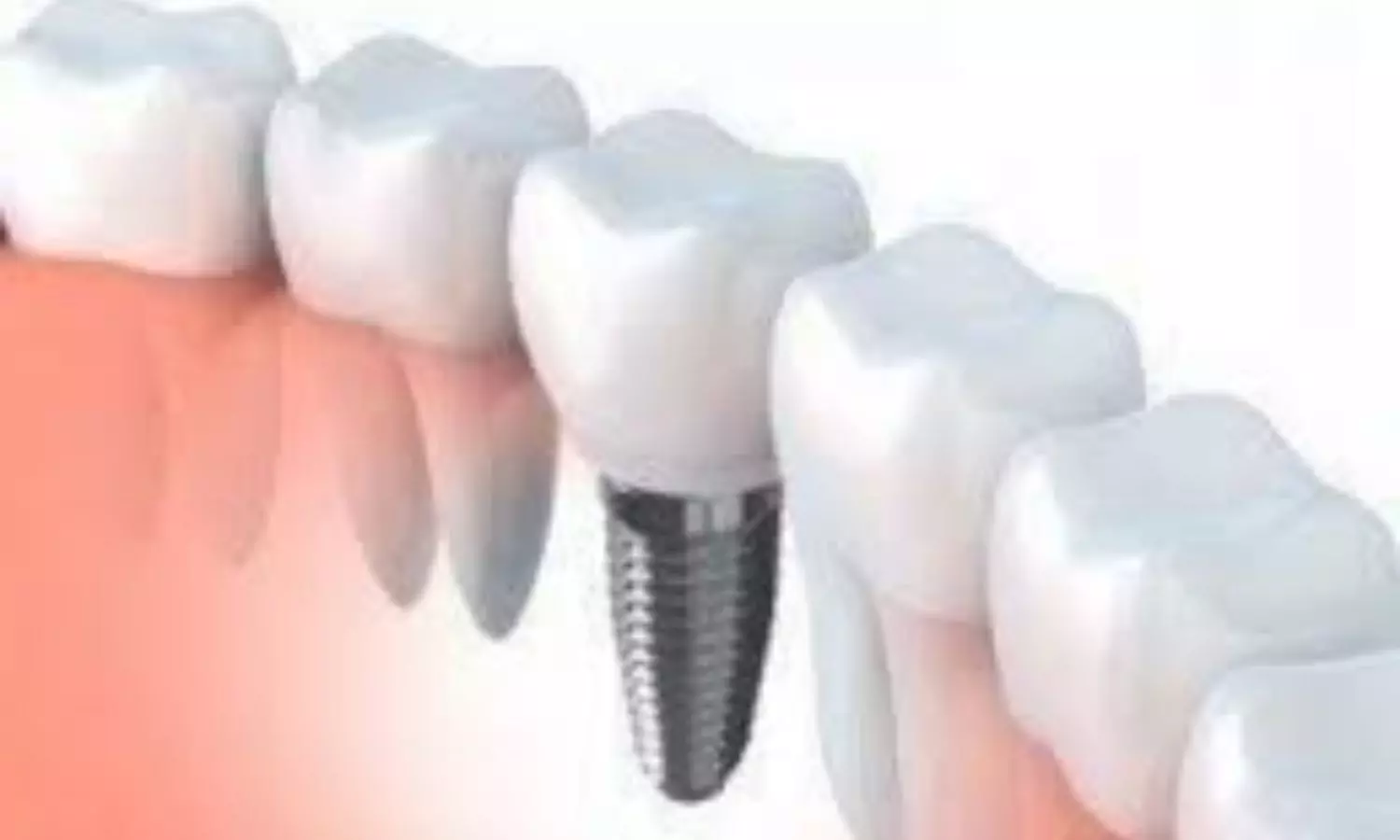Systematic Review Reveals Impact of Antiresorptive Drugs on Osseointegrated Dental Implants

Hong Kong: In a comprehensive investigation, a recent systematic review has delved into the effect of antiresorptive drugs on osseointegrated dental implants, shedding light on a crucial aspect of oral health care. The review synthesizes evidence to provide valuable insights for dental professionals and patients.
The review published in the Journal of Clinical Medicine highlights the significant impact of antiresorptive drugs on osseointegrated implants, with medication-related osteonecrosis of the jaw (MRONJ) identified as a leading cause of implant failure. It emphasized the potential role of peri-implantitis as a trigger for MRONJ.
"Regular monitoring and maintaining good periodontal health, particularly within the first three years of antiresorptive drug therapy initiation, are crucial for implant success," the researchers wrote. "Dentists and physicians should provide comprehensive information to patients prescribed with antiresorptive drugs, stressing the need for an awareness of MRONJ risks in the context of osseointegrated implants."
Osseointegrated dental implants have revolutionized dentistry, offering a reliable and durable solution for replacing missing teeth. However, there have been concerns regarding the potential impact of antiresorptive drugs, commonly used in the management of osteoporosis and other skeletal disorders, on the success and longevity of dental implants.
The researchers Joyce Tin Wing and Yiu Yan Leung from Oral and Maxillofacial Surgery, Faculty of Dentistry in The University of Hong Kong, Pok Fu Lam, Hong Kong, aimed to evaluate the impact of antiresorptive drug therapy on osseointegrated dental implants and the association with medication-related osteonecrosis of the jaw.
For this purpose, the researchers performed a systematic search, including a computer search of several databases with specific keywords, a reference search, and a manual search of four key maxillofacial journals. Then, they evaluated relevant articles, and those that fulfilled the five predetermined criteria entered the final review. In the eight studies analyzed, 445 implants were included in 135 subjects.
The researchers reported the following findings:
- The failure rate of dental implants after antiresorptive medication in the included studies was 23%, with 83% of failures attributed to MRONJ.
- The average time from antiresorptive drug initiation to MRONJ development was approximately 34 months, ranging from 3 months to 16 years.
- The majority of MRONJ cases were classified as stage 2, and all sites showed complete healing or substantial mucosal coverage after treatment.
The researchers recommend a longer term of follow-up to identify and manage MRONJ around dental implants in an early manner.
"Understanding the risk may form part of the informed consent procedure for patients with dental implants considering to receive antiresorptive treatment. By providing knowledge to the patients and implementing appropriate monitoring and preventive measures, healthcare providers can optimize patient long-term success and success in implant dentistry," they concluded.
Reference:
Li, J. T., & Leung, Y. Y. (2023). Effect of Antiresorptive Drugs on Osseointegrated Dental Implants: A Systematic Review. Journal of Clinical Medicine, 13(7), 2091. https://ift.tt/3Dxqlr5
from Medical News, Health News Latest, Medical News Today - Medical Dialogues | https://ift.tt/9EM4CV6
Comments
Post a Comment